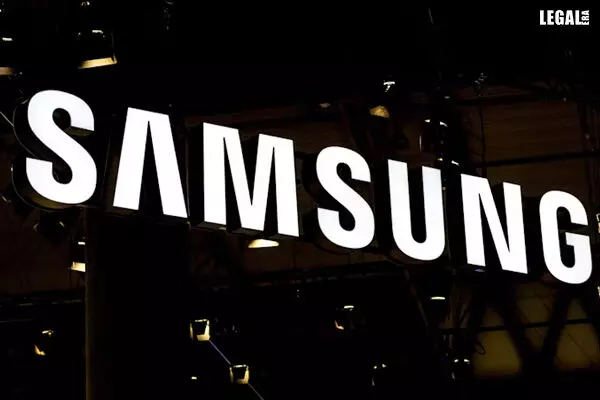- Home
- News
- Articles+
- Aerospace
- Artificial Intelligence
- Agriculture
- Alternate Dispute Resolution
- Arbitration & Mediation
- Banking and Finance
- Bankruptcy
- Book Review
- Bribery & Corruption
- Commercial Litigation
- Competition Law
- Conference Reports
- Consumer Products
- Contract
- Corporate Governance
- Corporate Law
- Covid-19
- Cryptocurrency
- Cybersecurity
- Data Protection
- Defence
- Digital Economy
- E-commerce
- Employment Law
- Energy and Natural Resources
- Entertainment and Sports Law
- Environmental Law
- Environmental, Social, and Governance
- Foreign Direct Investment
- Food and Beverage
- Gaming
- Health Care
- IBC Diaries
- In Focus
- Inclusion & Diversity
- Insurance Law
- Intellectual Property
- International Law
- IP & Tech Era
- Know the Law
- Labour Laws
- Law & Policy and Regulation
- Litigation
- Litigation Funding
- Manufacturing
- Mergers & Acquisitions
- NFTs
- Privacy
- Private Equity
- Project Finance
- Real Estate
- Risk and Compliance
- Student Corner
- Take On Board
- Tax
- Technology Media and Telecom
- Tributes
- Viewpoint
- Zoom In
- Law Firms
- In-House
- Rankings
- E-Magazine
- Legal Era TV
- Events
- Middle East
- Africa
- News
- Articles
- Aerospace
- Artificial Intelligence
- Agriculture
- Alternate Dispute Resolution
- Arbitration & Mediation
- Banking and Finance
- Bankruptcy
- Book Review
- Bribery & Corruption
- Commercial Litigation
- Competition Law
- Conference Reports
- Consumer Products
- Contract
- Corporate Governance
- Corporate Law
- Covid-19
- Cryptocurrency
- Cybersecurity
- Data Protection
- Defence
- Digital Economy
- E-commerce
- Employment Law
- Energy and Natural Resources
- Entertainment and Sports Law
- Environmental Law
- Environmental, Social, and Governance
- Foreign Direct Investment
- Food and Beverage
- Gaming
- Health Care
- IBC Diaries
- In Focus
- Inclusion & Diversity
- Insurance Law
- Intellectual Property
- International Law
- IP & Tech Era
- Know the Law
- Labour Laws
- Law & Policy and Regulation
- Litigation
- Litigation Funding
- Manufacturing
- Mergers & Acquisitions
- NFTs
- Privacy
- Private Equity
- Project Finance
- Real Estate
- Risk and Compliance
- Student Corner
- Take On Board
- Tax
- Technology Media and Telecom
- Tributes
- Viewpoint
- Zoom In
- Law Firms
- In-House
- Rankings
- E-Magazine
- Legal Era TV
- Events
- Middle East
- Africa
U.S. Appeals Court Rules In Favor Of Samsung In Consumer Privacy Arbitration Dispute

U.S. Appeals Court Rules In Favor Of Samsung In Consumer Privacy Arbitration Dispute
A U.S. appeals court has overturned a ruling that required Samsung Electronics to pay millions in arbitration fees for responding to numerous consumer privacy claims. The Chicago-based 7th U.S. Circuit Court of Appeals reversed a lower court decision that mandated Samsung to arbitrate the claims and cover administrative costs.
The three-judge panel unanimously ruled that the plaintiffs had not demonstrated the existence of valid arbitration agreements. Additionally, the panel determined that the lower court's order demanding Samsung to cover administrative fees exceeded the judge's authority.
The reversal marks a setback for tens of thousands of Illinois consumers who sought arbitration for privacy claims against Samsung, rather than pursuing them in court. The consumers filed a lawsuit in 2022 alleging that Samsung violated state law by improperly collecting and using biometric data such as facial scans and fingerprints.
Samsung has denied the allegations, dismissing them as "frivolous." In its appeal, Samsung challenged the consumers' assertion of valid arbitration agreements and refuted claims that it had refused to engage in arbitration.
The appeals court emphasized that the consumers failed to provide sufficient evidence to establish they were Samsung customers. According to the panel, a spreadsheet containing names and addresses was insufficient to prove the existence of arbitration agreements; consumer information such as receipts and order numbers would have been necessary.
The consumers had argued that the appeals court lacked jurisdiction because the trial judge had initially ordered the dispute into arbitration. They also contended that they should have been given an opportunity in the lower court to substantiate the validity of arbitration agreements for the 35,651 Illinois consumers who had filed arbitration demands.
"The consumers had their chance to present evidence, and they did not succeed," wrote Circuit Judge Thomas Kirsch II, joined by Chief Judge Diane Sykes and Circuit Judge Frank Easterbrook. The appeals court concluded that the case status did not permit reconsideration.



